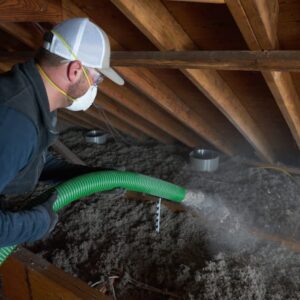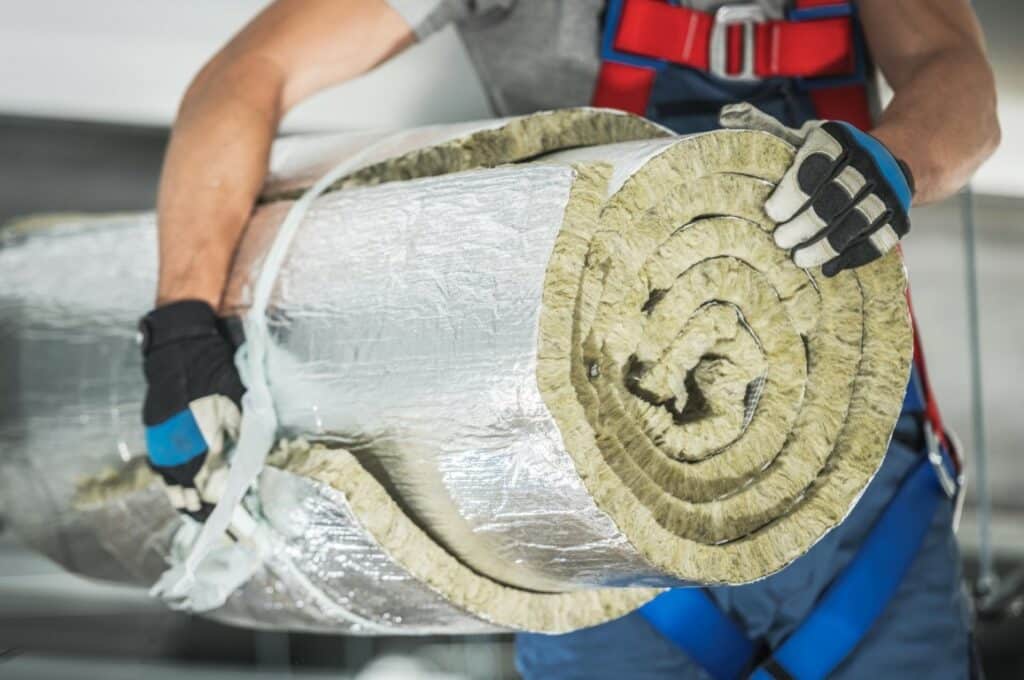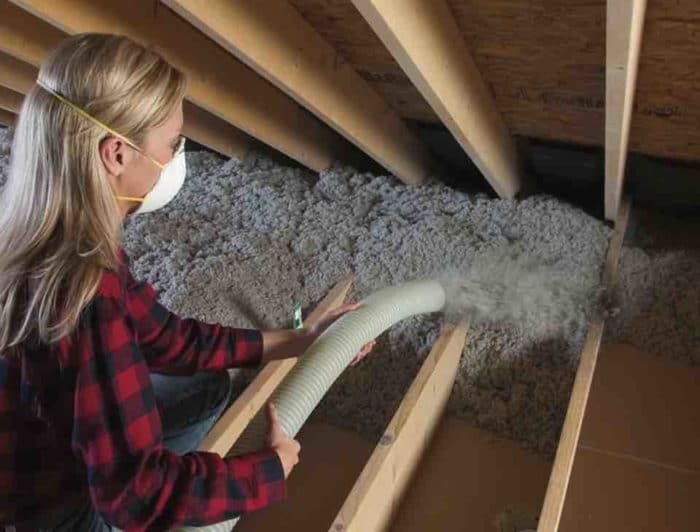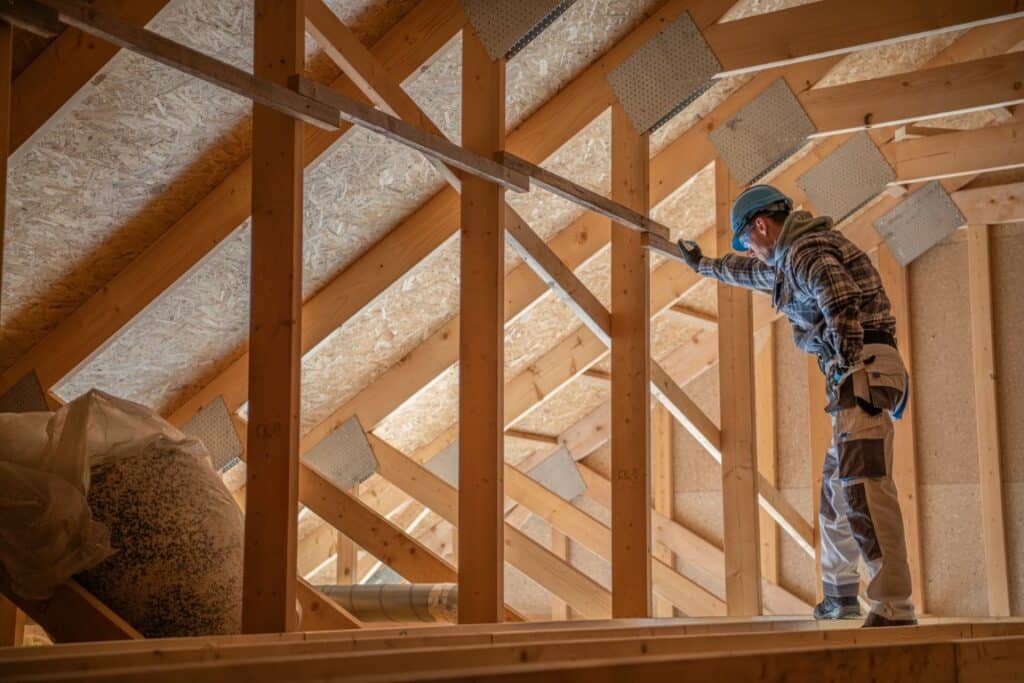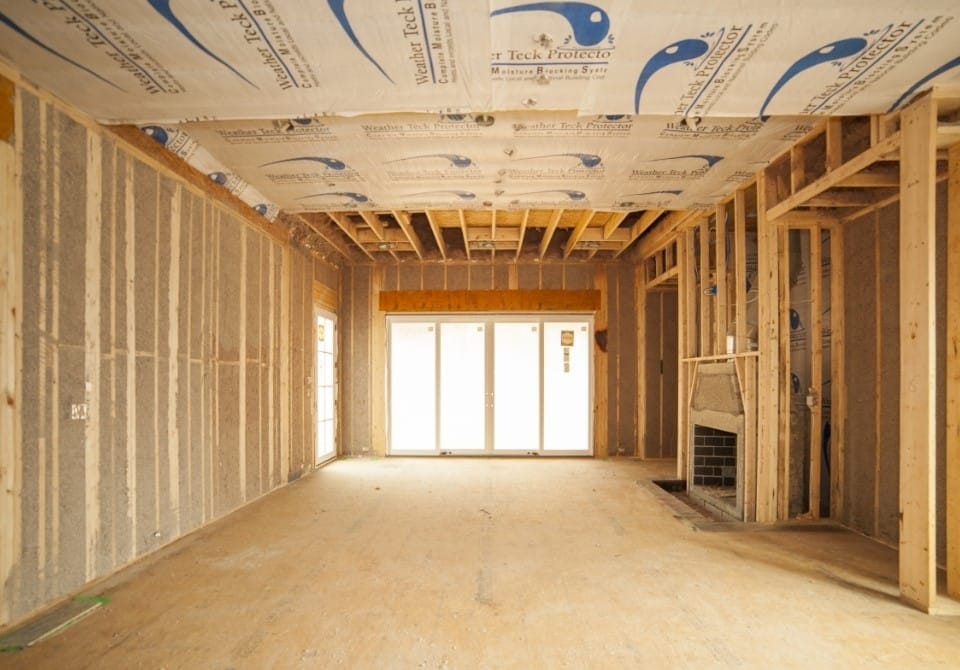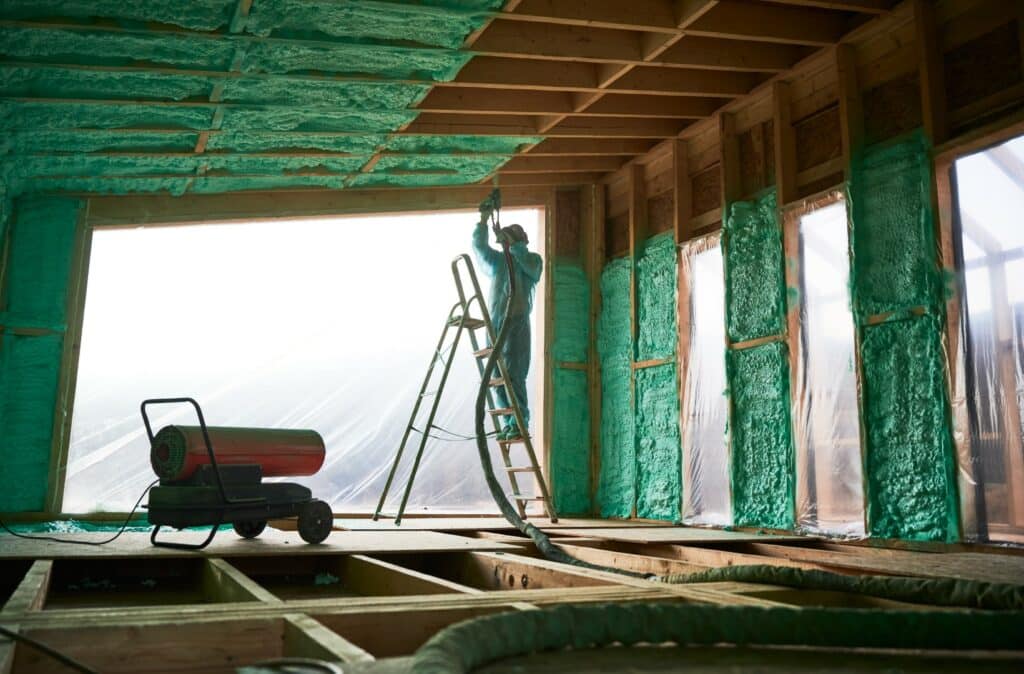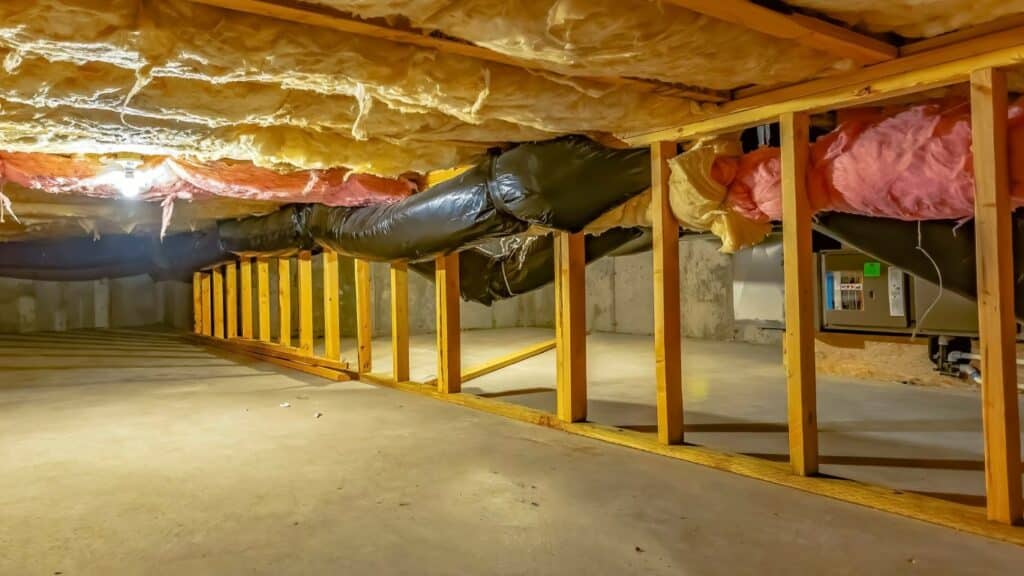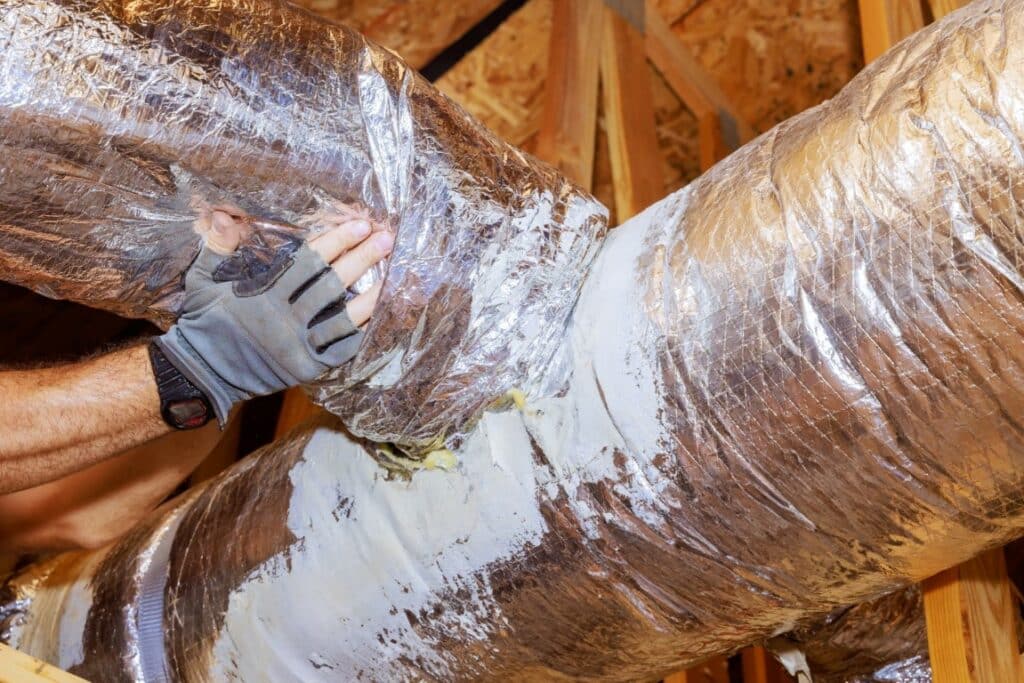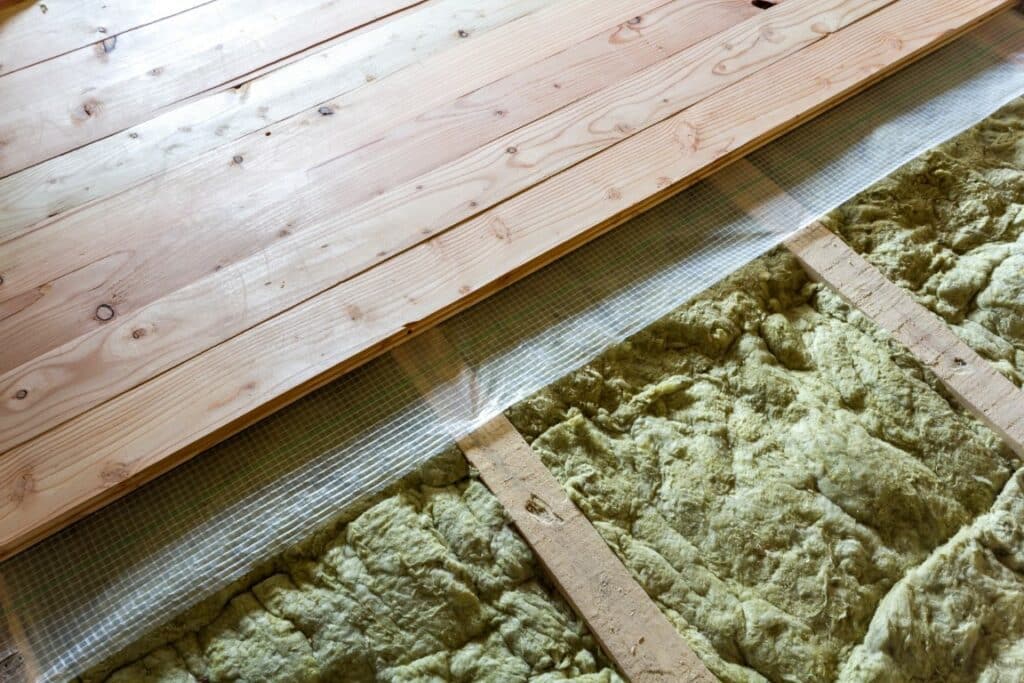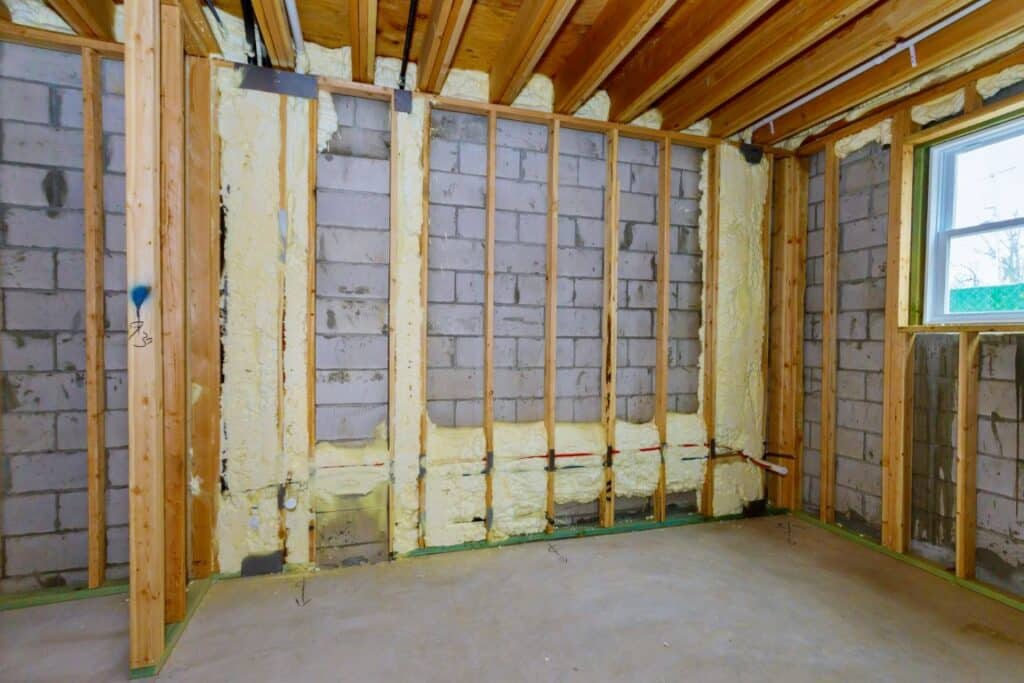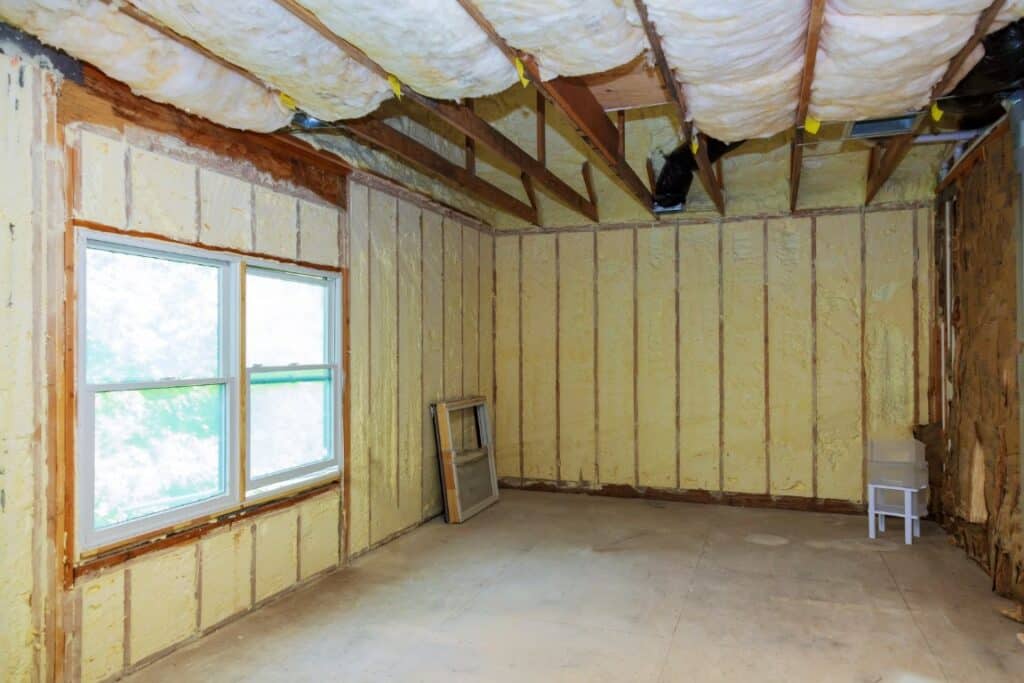Attic Insulation Rebates 75-100% off costs.
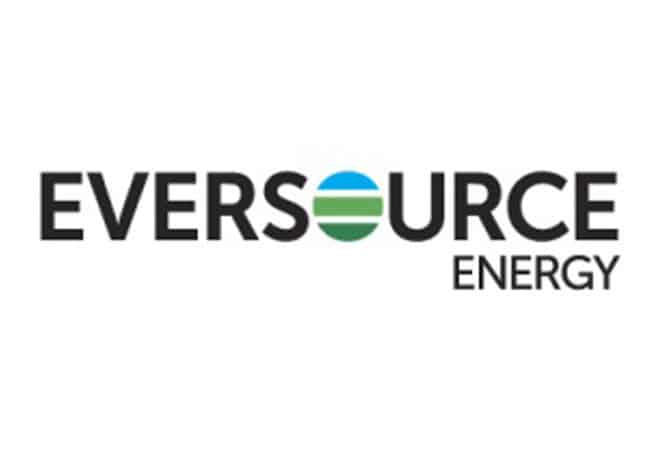
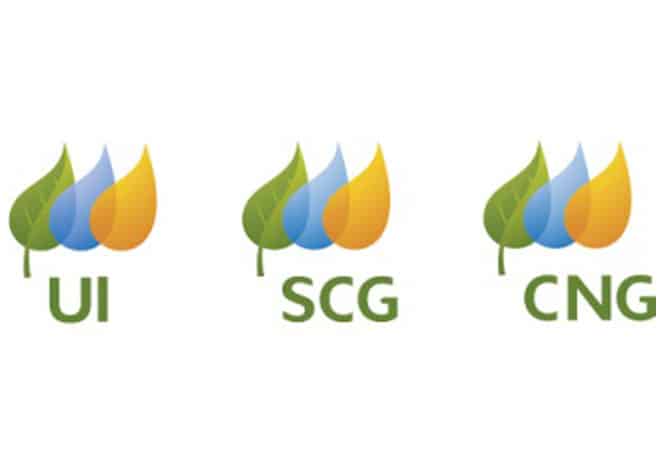
Enhance your attic's efficiency with Home Comfort Practice and recover up to 75-100% of costs through Energize Connecticut, offering $1.70/square foot for eligible customers.
Attic insulation plays a pivotal role in reducing energy costs and enhancing indoor comfort by maintaining stable temperatures year-round. Explore our range of attic insulation solutions tailored to address common issues like uneven temperatures and moisture Let Home Comfort Practice help you achieve the optimal insulation level for your attic and improve your home's comfort and efficiency.
Importance of Attic Insulation
In Connecticut, where seasons can be extreme, proper attic insulation is crucial for maintaining a comfortable, energy-efficient home. It keeps warm air out in the summer and retains heat in the winter, leading to significant energy savings and increased comfort. Insufficient insulation can lead to various issues, including ice dams, high heating and cooling costs, uneven temperatures, and moisture accumulation. Adequate attic insulation helps in solving these problems, contributing to a healthier and more durable home.

Benefits of Proper Attic Insulation
Energy Efficiency and Cost Savings: Proper attic insulation can significantly reduce your heating and cooling expenses, with many Connecticut homeowners seeing a return on their insulation investment through lowered energy bills.
Enhanced Home Comfort: Adequate insulation ensures consistent temperatures throughout your home, eliminating cold drafts in the winter and reducing heat penetration during summer.
Moisture Control and Air Quality Improvement: By preventing temperature differentials, proper attic insulation minimizes the risk of moisture problems, which can lead to mold growth and poor indoor air quality.
Frequently Asked Questions about Attic Insulation
Attic insulation is crucial because it helps maintain consistent indoor temperatures, reduces energy costs by preventing heat loss in winter and heat gain in summer, and enhances overall home comfort.
Typical attic insulation materials include fiberglass batts, cellulose loose-fill, spray foam, and rigid foam boards. Each has different properties suitable for various attic conditions and homeowner preferences.
Signs of inadequate attic insulation include uneven indoor temperatures, high heating or cooling bills, and visible floor joists (indicating low insulation levels).


Yes, proper attic insulation can significantly lower heating and cooling costs by reducing the amount of energy needed to maintain comfortable indoor temperatures.
In Connecticut, the recommended R-value for attic insulation typically ranges from R-38 to R-60, depending on specific local climate zones and energy codes.
Insulating the attic floor is common in vented attics, as it isolates the living space from the unconditioned attic. Insulating the underside of the roof is preferred in unvented attics, integrating the attic space into the home's thermal envelope.
Proper attic insulation can improve indoor air quality by reducing the infiltration of outdoor pollutants and allergens and by minimizing moisture buildup that can lead to mold growth.
Attic insulation can last 20 to 30 years or more, but it may need replacing if it becomes wet, compressed, or contaminated with dirt or pests.
Some attic insulation types, like batts, can be DIY-friendly, but for materials like spray foam or if your attic has hard-to-reach areas, professional installation ensures safety and maximum efficiency.

Attic Insulation Materials
-
Spray Foam Attic Insulation

Spray Foam Attic Insulation
Offering superior air sealing and moisture resistance, spray foam insulation is perfect for sealing air leaks and insulating irregular spaces in attics. Although it’s more costly upfront, its exceptional R-value and moisture-blocking capabilities make it a valuable investment for Connecticut homes.
-
Blown Cellulose Attic Insulation

Blown Cellulose Attic Insulation
Ideal for Connecticut homes, loose-fill insulation provides excellent coverage, especially in attics with irregular joists or numerous obstructions. It's typically less expensive than batt insulation and can be installed over existing insulation, enhancing its thermal performance.
-
Blanket/Batt Attic Insulation

Blanket/Batt Attic Insulation
This traditional insulation type is suitable for attics with regular joist spacing and minimal obstructions. It's easy to install and effective in areas without existing insulation.
-
Rigid/Foam Attic Insulation

Rigid/Foam Attic Insulation
While not as common for attic floors, rigid foam boards can be used on attic rafters or as part of a comprehensive retrofit plan to improve thermal barriers and reduce thermal bridging, especially in finished attic spaces.
Learn More
Qualify for Attic Insulation Rebates by Getting a Home Energy Audit
$0
$0
Average Annual Energy Savings$0
Weatherization Service Value$0
Average 1st Year SavingsRebates for Attic Insulation
| Energize CT Rebate: $1.70 per Square Foot | |
|---|---|
| Avg. Initial Cost | $1500-$10000 |
| Max Rebate | N/A |
| Avg. Lifetime Savings | $4000 |
Claim up to $1.70 per square foot on approved insulation projects recommended during a Home Energy Solutions assessment.This may cover between 75-100% of insulation costs!
| IRA Tax Credit: % of Costs | |
|---|---|
| 25C Max Credit | $1600 |
| 25D Max Credit | Uncapped |
The Inflation Reduction Act tax credit for weatherization in Connecticut offers homeowners a 30% tax credit for eligible projects, with a maximum claim of $1,200 per year. It covers insulation, air sealing, doors, windows, and energy audits. Weatherization reduces energy waste, lowers bills, and improves home comfort while decreasing carbon emissions.
| IRA Electrification Rebate: $1600 | |
|---|---|
| Upfront Discount | 50%-100% of Costs |
| Avg. Initial Cost | N/A |
Connecticut homeowners may be eligible to claim up to $1,600 for their weatherization project through the Inflation Reduction Act Electrification Rebate program, depending on their income. Low-income households can receive 100% coverage of weatherization costs, while moderate-income households can receive 50% coverage. (The total cap for Electrification Rebates across all qualified projects is $14,000.)
Other Areas to Install Insulation
-
Attic Insulation

-
Basement Insulation

-
Ceiling Insulation

-
Crawlspace Insulation

-
Duct Insulation

-
Floor Insulation

-
Foundation Insulation

-
Wall Insulation



